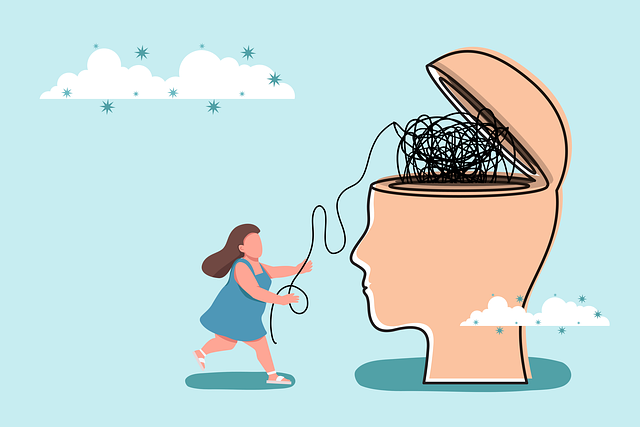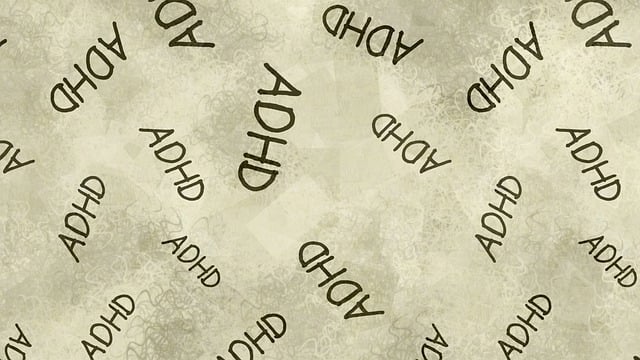Mindfulness meditation, an ancient practice tailored for young minds, offers powerful emotional healing and self-esteem development in today's fast-paced world. Through simple exercises like breath focus and sensory guidance, it fosters emotional intelligence and presents a holistic therapy approach, complementing Christian counseling sessions. Establishing consistent meditative routines in calm, distraction-free environments enhances relaxation, emotion processing, unity, confidence, and depression prevention for young children, aligning with familial values through creative strategies and patient guidance.
Introduce your young minds to the calming power of mindfulness meditation with this comprehensive guide. We explore effective strategies, especially tailored for parents seeking therapy options for their children. From understanding the basics of mindfulness for kids to its integration through Christian counseling, we provide practical steps for establishing a meditative routine. Additionally, we delve into the benefits and potential challenges, offering insights to enhance your child’s mental well-being.
- Understanding Mindfulness Meditation for Young Children
- The Role of Christian Counseling in Integrating Mindfulness
- Practical Steps to Establish a Meditative Routine
- Benefits and Potential Challenges: A Parent's Perspective
Understanding Mindfulness Meditation for Young Children

Mindfulness meditation is an ancient practice that has gained modern popularity for its numerous benefits, especially when tailored for young children. This form of therapy offers a gentle and effective way to support children’s emotional healing processes and self-esteem improvement. In today’s fast-paced world, introducing mindfulness to kids can be a game-changer in their overall well-being.
For young minds, mindfulness meditation provides a sanctuary from the constant buzz of daily life. Through simple exercises like focusing on breath or guiding them through sensory experiences, children learn to cultivate present-moment awareness. This practice not only helps in developing emotional intelligence but also serves as an excellent tool for Christian counseling sessions, offering a holistic approach to their therapy. By integrating mindfulness into counseling, professionals can facilitate public awareness campaigns development, encouraging children and their families to embrace a calmer and more mindful lifestyle.
The Role of Christian Counseling in Integrating Mindfulness

In the context of modern wellness practices, integrating mindfulness into therapeutic approaches offers a holistic healing method, especially within Christian counseling settings. This ancient technique has gained prominence for its benefits in improving mental health and well-being, making it a valuable tool for therapists providing therapy for young children. By combining biblical principles with mindfulness meditation, counselors can create a nurturing environment that promotes self-awareness and emotional regulation in their young clients.
Christian counseling incorporates unique communication strategies, aligning mindfulness practices with spiritual beliefs. Mindfulness meditation encourages individuals to focus on the present moment, accepting thoughts and emotions without judgment. This practice, when coupled with a faith-based framework, allows children to explore their feelings while connecting with a higher power. As a result, it becomes an effective method for burnout prevention strategies for healthcare providers who work with young patients, fostering resilience and a sense of inner peace.
Practical Steps to Establish a Meditative Routine

Establishing a consistent meditative routine can be transformative for anyone, especially young children who are navigating their emotional landscape. Here are practical steps to help your little ones embrace mindfulness meditation:
1. Create a Calm Environment: Start by setting aside a quiet space in your home where distractions are minimal. A dedicated area with comfortable seating and soft lighting can make all the difference. You might consider incorporating natural elements like plants or a small water feature to create a soothing atmosphere, which can enhance their overall experience.
2. Introduce Simple Techniques: Begin with basic meditation practices that cater to children’s attention spans. Guided visualizations, where you lead them through imaginative scenarios, can be engaging. For instance, take them on a journey through a peaceful garden or a magical forest. You can also teach simple breathing exercises tailored for kids, like the ‘breezy lungs’ technique, which involves gently blowing air in and out while imagining each breath as a soothing wave. These activities not only promote relaxation but also serve as valuable therapy for young children, offering a healthy outlet for processing emotions and enhancing their mental well-being. Additionally, integrating these practices into your family’s routine can foster a sense of unity and support, especially when coupled with Christian counseling sessions for enhanced confidence boosting and depression prevention.
Benefits and Potential Challenges: A Parent's Perspective

Mindfulness meditation can offer profound benefits for young children, as it helps them develop emotional intelligence and build empathy. Regular practice has been shown to enhance self-awareness and calmness, enabling kids to better regulate their emotions and react thoughtfully rather than impulsively. This can be a powerful tool in parenting, promoting positive interactions within the family unit.
However, introducing mindfulness to children may present challenges from a parent’s perspective. Youngsters might struggle with focusing on their breath or bodily sensations due to their developing attention spans and curiosity levels. Additionally, some kids may find it hard to sit still for extended periods, requiring creative strategies like incorporating movement or using playful techniques to make the practice more engaging. Christian counseling can offer valuable guidance here, suggesting ways to tailor mindfulness meditation to suit a child’s unique needs while aligning with familial values. Through patience, persistence, and the use of empathy building strategies and social skills training, parents can help their children cultivate a mindful mindset, reaping long-lasting benefits for their emotional well-being.
Mindfulness meditation, when integrated into daily routines through therapy for young children, can offer significant benefits. As discussed, Christian counseling provides a unique framework to teach mindfulness in a way that aligns with faith-based values. By following practical steps to establish a meditative routine and understanding the potential challenges from a parent’s perspective, adults can effectively guide young minds towards a more balanced and aware state. This holistic approach not only enhances emotional well-being but also fosters resilience in children, making them better equipped to navigate life’s complexities.










